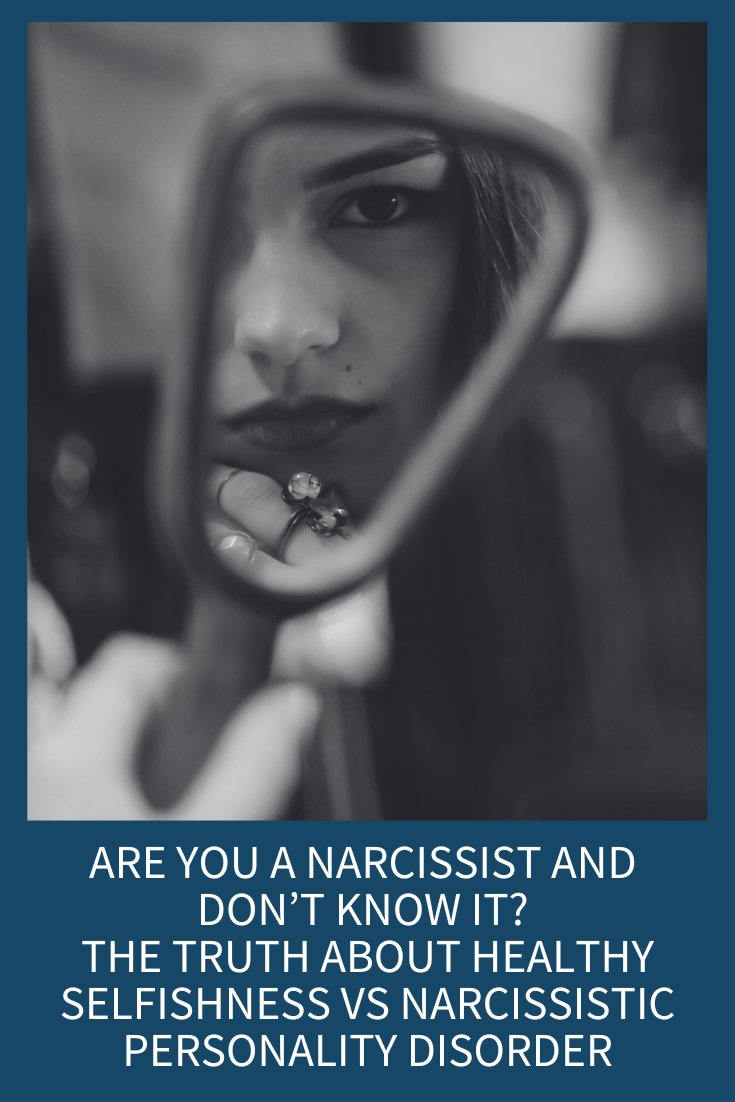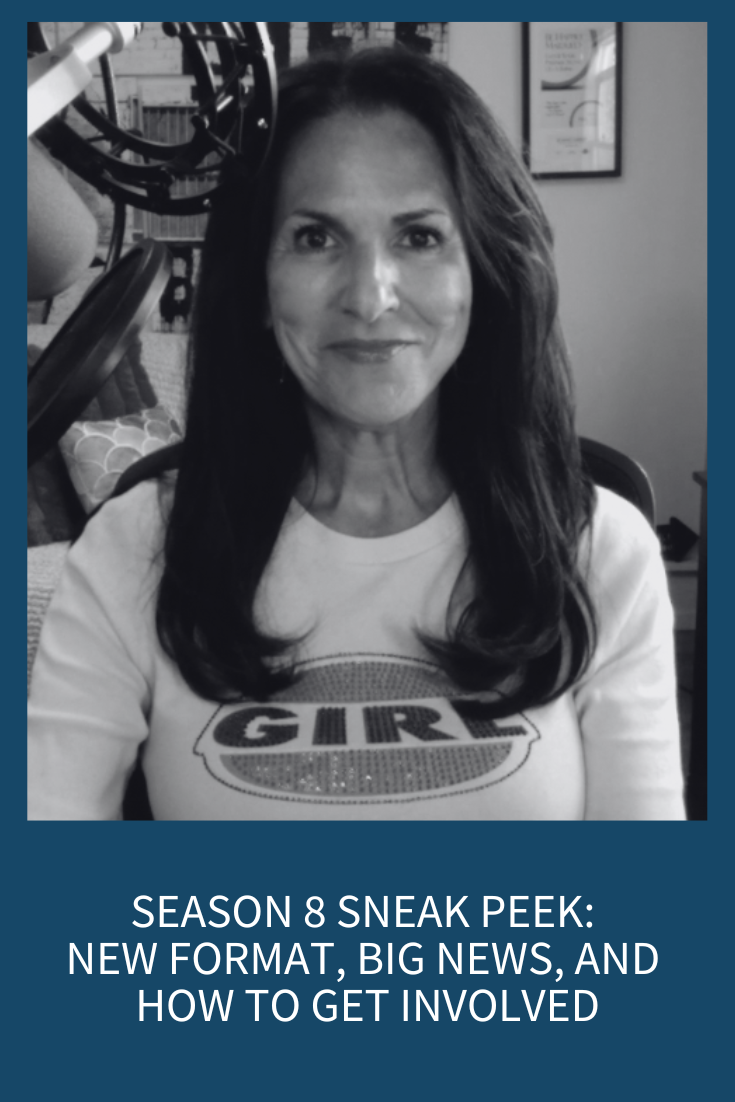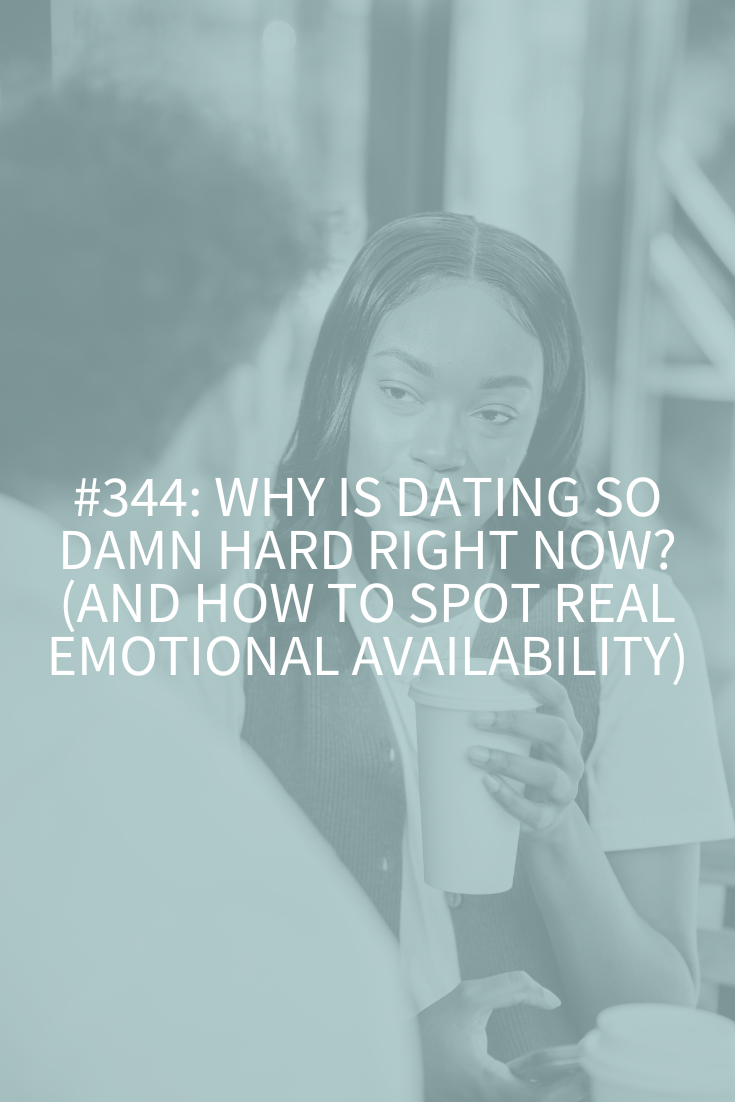
“I’m just putting myself first, is that narcissistic?” “Am I being selfish or setting a boundary?” “I think I might be a narcissist.” Sound familiar? If you’ve asked yourself any of these questions, take a deep breath. You’re probably not a narcissist. But the fact that you’re even wondering is worth unpacking, because somewhere between healthy self-love and full-blown Narcissistic Personality Disorder (NPD), things get murky. So let’s clear it up. Today we’re digging into the difference between being self-focused (a good thing), being selfish (sometimes good, sometimes not), and having narcissistic traits or full-blown NPD (not great). Then, you’ll learn my five action steps for building healthy self-love without going overboard.
8-minute read
What is Narcissistic Personality Disorder (NPD)?
First things first. NPD is a clinical diagnosis, not a casual insult or a label to throw at your ex. It affects about 0.5% to 1% of the population and is rooted in deep, longstanding emotional and psychological patterns. People with NPD show a consistent pattern of grandiosity, a lack of empathy, and a need for admiration that significantly impacts their relationships and quality of life.
Signs and Symptoms of Narcissistic Personality Disorder
- A grandiose sense of self-importance
- Preoccupation with fantasies of unlimited success, power, brilliance, or beauty
- Believing they’re special and should only associate with high-status people
- A need for excessive admiration
- A sense of entitlement
- Exploitative behavior in relationships
- Lack of empathy
- Envy of others or belief that others envy them
- Arrogant or haughty behaviors or attitudes
These aren’t just occasional behaviors. They’re chronic, pervasive, and cause real dysfunction.
The Power of Healthy Selfishness (and Why It’s Not What You Think)
Let’s get one thing straight: selfishness gets a bad rap. If you were raised in a home, culture, or religion that preached self-sacrifice as the highest virtue, you probably got the message early: “Good people put others first.” Over time, that might’ve become: “Only bad, selfish people care about their own needs.” And if you see yourself as a kind, moral, generous person (which I’m betting you do), prioritizing yourself might feel… wrong.
But here’s the truth: you can’t pour from an empty cup, and constantly draining yourself isn’t virtuous—it’s unsustainable.
Healthy selfishness isn’t about ignoring other people’s needs. It’s about putting your own oxygen mask on first, because when you’re grounded, energized, and calm, you actually have more to give to others. And there’s science to back this up. I did an entire episode of the podcast on healthy selfishness, and I also discussed it at length in my Boundaries Made Easy book, but I’ll say a few things here right now.
Research Says: Healthy Selfishness Helps You and Others
Studies over the past two decades show that healthy selfishness is positively correlated with psychological well-being, including lower levels of depression and anxiety and higher levels of calm and satisfaction. But even more surprising? People who score high on healthy selfishness are also more likely to exhibit prosocial behaviors, things like donating, volunteering, and helping others.
Yes, the more you lovingly prioritize yourself, the more generous and kind you actually become. Why? Because you’re giving from a place of authenticity, not resentment or burnout.
On the flip side, we’ve got something I’ve mentioned before called pathological altruism. This is when you help others at your own expense, not out of love, but from fear, guilt, or a need for approval. We’re talking true codependency territory. Research shows this kind of over-giving is linked to vulnerable narcissism (a type of narcissism marked by insecurity and people-pleasing) and less authentic connections.
Healthy Selfishness Is…
- Respecting your time, energy, and emotional bandwidth
- Setting boundaries and saying “no” without spiraling into guilt
- Making decisions based on what’s right for you, not what’ll make others like you
- Investing in your growth, joy, and rest
- Honoring your needs the way you do for others
Back in 1939, German social psychologist Erich Fromm wrote an essay called Selfishness and Self-Love, where he argued that our culture teaches people to feel guilty for prioritizing themselves. He described healthy self-love as “the passionate affirmation and respect for one’s own happiness, growth and freedom.” Abraham Maslow, yes, the hierarchy-of-needs guy, built on Fromm’s work. He emphasized the difference between healthy and unhealthy selfishness, arguing that pursuing joy and personal growth isn’t just good for us, it actually benefits the people around us.
In short: loving yourself isn’t selfish—it’s essential.
Quick Quiz: Healthy Selfishness or Narcissism?
Not sure where you land? Here’s a quick self-check to help you reflect without judgment:
| Situation | Healthy Selfishness | Narcissistic Trait or NPD |
| You say no to protect your time and energy | ✅ | |
| You say no because other people’s needs feel like a burden | ❌ | |
| You feel proud of something you accomplished and share it | ✅ | |
| You dominate conversations to get constant praise | ❌ | |
| You want to look good and feel confident | ✅ | |
| You seek perfection and belittle others to feel superior | ❌ | |
| You want alone time to recharge and set boundaries for it | ✅ | |
| You withdraw emotionally to punish someone | ❌ | |
| You consider how your actions impact others | ✅ | |
| You believe your needs matter more than anyone else’s | ❌ | |
| You ask for support when you need it | ✅ | |
| You demand attention and feel offended when others have needs | ❌ | |
| You get upset when someone crosses a boundary, but talk it through | ✅ | |
| You explode or shut down when someone doesn’t meet your expectations | ❌ | |
| You’re aware of your flaws and work on them | ✅ | |
| You blame others and never take accountability | ❌ | |
| You care about doing good things—but don’t need credit for it | ✅ | |
| You only help others if there’s something in it for you | ❌ | |
| You admit when you’re wrong and apologize | ✅ | |
| You deny wrongdoing and turn the blame around | ❌ |
When to Be Concerned
Everyone has moments of ego, insecurity, or frustration. But if these patterns are showing up frequently, and if people in your life are giving you feedback that something feels off, it’s time to pay attention. Now, keep in mind, these might be people you’re drawing boundaries with, so they’re calling you selfish or narcissistic because they don’t like your boundaries. But it’s still a good idea to check yourself so you can be clear that you’re coming from a healthy place.
Ask yourself:
- Can I empathize with others, even when I don’t agree?
- Red flag: You feel irritated, dismissive, or bored when people share their feelings.
- Example: A friend opens up about being anxious, and you roll your eyes or tell them to “just get over it.”
- Do I take responsibility for my mistakes?
- Red flag: You deflect, blame others, or never apologize sincerely.
- Example: You hurt someone and say, “Well, I wouldn’t have done that if you hadn’t pushed me.”
- Are my relationships mutual and balanced?
- Red flag: You expect loyalty, emotional labor, or support, but rarely give the same in return.
- Example: You expect your partner to drop everything for you but get annoyed when they ask for support.
- Am I open to growth and feedback?
- Red flag: You see feedback as an attack, and either lash out or silently retreat.
- Example: A colleague gives you a note on your behavior, and you spend the next week avoiding or gossiping about them.
- How do people feel after spending time with me?
- Red flag: You regularly hear that people feel drained, unimportant, or anxious around you.
If this section is hitting home, don’t panic. Awareness is the first step toward change, and real narcissists aren’t usually asking themselves these kinds of questions.
Action Steps: How to Build Healthy Self-Love Without Going Overboard
This is where the healing begins. Here’s how to practice healthy selfishness that actually strengthens your relationships.
1. Create a “Yes to Me” List
Write down 10 things you’re allowed to do without guilt. Read it every day for a month.
Examples:
- I’m allowed to rest even if others are still working.
- I’m allowed to say no, even if it disappoints someone.
- I’m allowed to make decisions that others don’t understand.
This helps rewire your inner voice from guilt to groundedness.
2. Use a “Selfish Practice” Journal
Each night, reflect on:
- What did I do today that honored my needs?
- How did that positively impact me or someone else?
Example: “I skipped a last-minute request to help with a PTA event and took a walk instead. I felt calmer, and I was more patient with my kids at dinner.”
This builds the muscle of prioritizing yourself without shame.
3. Practice Empathic Boundaries
Use this 3-part script:
- Acknowledge their need
- State your boundary
- Offer connection or compromise (if appropriate)
Example: “I know you’re feeling overwhelmed, and I want to support you. I can’t talk right now because I’m emotionally tapped out, but let’s check in tomorrow when I’m more grounded.”
This is how you protect your energy and relationships.
4. Interrupt the Validation Vortex
When you catch yourself craving external praise, pause and ask:
- What do I want them to validate?
- How can I offer that to myself right now?
Example: You’re about to post an accomplishment online for approval. Instead, write about it in your journal, say “I’m proud of myself” out loud, or call a friend who celebrates you for you.
5. Ask for Feedback with Intention
Choose someone you trust and ask:
- How do I show up when I’m stressed?
- Do I make space for your needs in our relationship?
- What’s something I do that feels self-focused or hard to be around?
Just listen. No defending. This is about growth, not perfection.
Final Thoughts: Self-Love Isn’t Narcissism
If you’re asking yourself, “Am I a narcissist?” you’re probably not. True narcissists rarely question themselves. But even if you’re not one, you might still be struggling with unhealthy people-pleasing, burned-out boundaries, or old beliefs that say caring for yourself is wrong.
It’s not. Healthy selfishness is how you show up for yourself and others. It’s not narcissism. It’s self-respect.
For the One Love Collective Community:
Tier I: Inner Circle
- Healthy Selfishness Daily Checklist
- Journal Prompts: Healthy Self-Love
Tier II: Love Accelerator
- 20 Empathic Boundary Scripts
- Guided Visualization: Embodying Healthy Self-Love
Tier III: VIP Love Lab
- Rewriting the Rules of Selfishness Worksheet
- What Kind of a Giver are You? Reflection Exercise
Get all the above for only $8! Buy the bundle now on Patreon.
Resources for Are You a Narcissist and Don’t Know It?
Buy the bundle for this episode for only $8 on Patreon!
Learn to Hold Your Boundaries with Healthy Selfishness
Codependency, Counter-dependency and Narcissism, Oh My!
What Narcissists Do When Backed into a Corner: Lessons from Celebrities Who Lost Control
Identifying and Understanding the Narcissistic Personality by Elsa F. Ronningstam
Boundaries Made Easy: Your Roadmap to Connection, Ease and Joy by Dr. Abby Medcalf
Oakley, Barbara, and others (eds), Pathological Altruism (2011; online edn, Oxford Academic, 19 Jan. 2012), https://doi.org/10.1093/acprof:oso/9780199738571.001.0001,
Emmanuel Caliwan, J. D. selfishness and selflove by Erich Fromm.
Toward a Psychology of Being, 2nd Edition by Abraham H. Maslow






